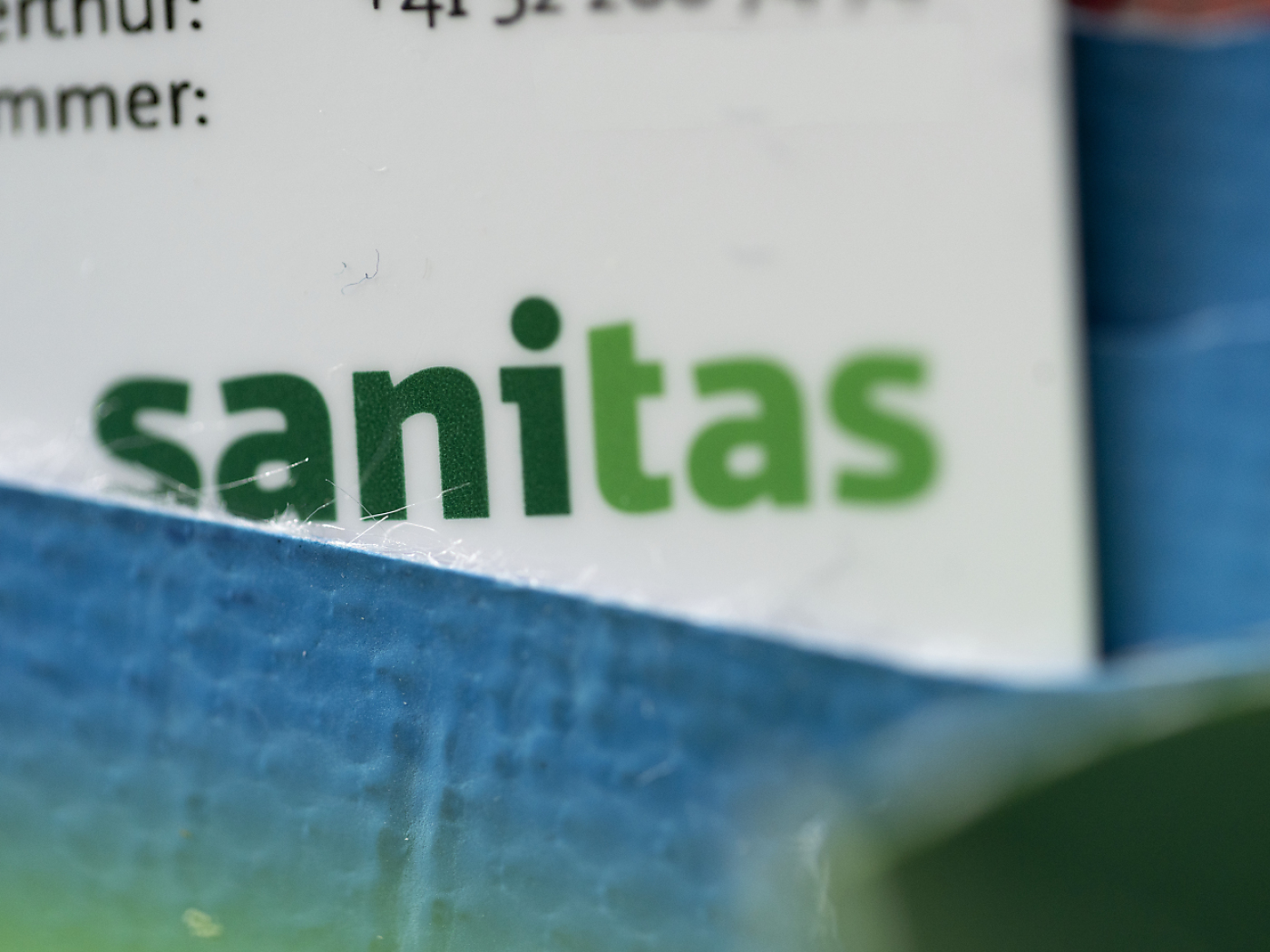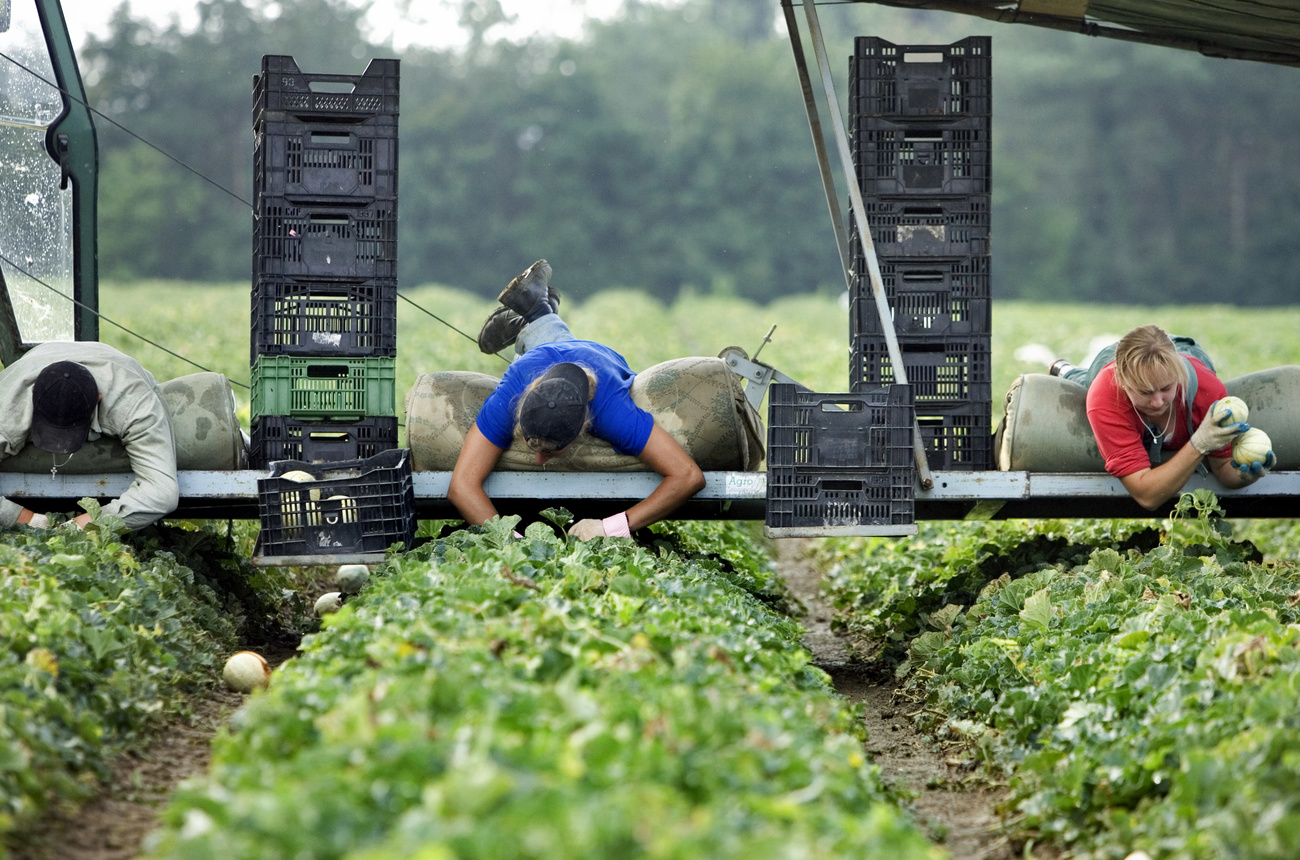Pandemic year ‘not all bad’ for the Swiss abroad
Most of us would agree that next year can only be better than this one. However, the director of the Organisation of the Swiss Abroad (OSA) says the interests of the “Fifth Switzerland” have been boosted in 2020.
swissinfo.ch: Ariane Rustichelli, Covid-19 has made this year pretty difficult for all of us, but OSA was already in trouble when Vice President Filippo Lombardi lost his seat in the Senate at the end of 2019. How extensive is the damage?
Ariane Rustichelli: It’s hard to say because of Covid-19. Lobbyists have been refused entry to the federal parliament building which has changed the way Filippo Lombardi lobbies on our behalf. Now he keeps in touch with parliamentarians via email and telephone, which has worked quite well so far. This year has not been all bad. We have had time to revamp our website (see inbox below), and the pandemic has generated more interest in our concerns. The debate on e-voting has been rekindled, and a few young parliamentarians have taken an interest in issues concerning the Swiss Abroad without prompting from us. This shows that lobbying has laid a foundation which is now bearing fruit. It proves we do not have to be physically present inside the parliament building to be effective, although Filippo Lombardi was unbeatable at lobbying there.
swissinfo.ch: Do you think parliamentarians are becoming more aware of matters concerning the Swiss abroad?
AR: Yes. I think they have finally realised how essential it is that nearly 200,000 Swiss citizens living abroad can exercise their political rights. Close results such as in the vote on the purchase of new fighter jets and the senate elections in the canton of Ticino have probably contributed to this shift in thinking. Many parliamentarians have understood that votes from abroad can change the outcome.
swissinfo.ch: This sounds ambivalent. What if the Swiss Abroad had changed the outcome of the fighter jet initiative? Doesn’t it raise the question of whether they should have a say even though they do not pay taxes?
AR: First of all, there are no comprehensive figures on how many votes come from abroad. Not all cantons count the votes of their foreign citizens separately, thus, we will never have exact numbers. I think it is important to find out how many votes each canton receives from abroad. It would not only be interesting for us, but also for our democratic system.
swissinfo.ch: However, the question of interfering with domestic matters remains…
AR: This is part of our democratic rights and is enshrined in Swiss law. Of course, you can ask yourself whether someone who has not lived in Switzerland for more than thirty years should be allowed to vote. However, we need to look at the figures. Out of the 800,000 Swiss citizens living abroad, only 180,000 are registered voters. This shows that many of them prefer to stay away and do not want to get involved. Voting four times per year carries a certain responsibility, is time consuming and you have to know how to do it. Looking at the number of ballots cast by the Swiss Abroad, it becomes obvious that many do not vote when they are not directly affected.
swissinfo.ch: This brings me to the Swiss People’s Party’s ‘limitation initiative’ on EU immigration which directly affected many Swiss Abroad. The OSA spent a lot of time and effort to campaign for a ‘No’ vote. In the end, the result was so clear that all the effort seemed in vain. Was it?
AR: No, because it was also a symbolic battle. It was important to show the significance the free movement of persons has for Swiss citizens living abroad. In politics, you should never expect to win. You have to fight until the last second, that’s part of political life.
The new website of the Organisation of the Swiss Abroad (OSA) is due to go live in the next few days. www.swisscommunity.org combines the Swiss Review magazine, OSA information as well as the old swisscommunity.org site. The new design is clearer and provides a better overview of the concerns relevant to the Swiss expat community.
The community portal offers a new feature for clubs to participate more actively. They can maintain their own websites on the portal or get inspired by other clubs. Another goal of the new platform is to foster connections between the different generations of the community. “Our idea was to turn things upside down and move away from the institutional approach. We aim to serve the needs of our users, who are the Swiss Abroad,” says Ariane Rustichelli.
swissinfo.ch: Another issue that sorted itself out was the initiative for the e-voting moratorium which was withdrawn by the campaigners. It was a stroke of luck for OSA, wasn’t it?
AR: Yes. It is a godsend that we do not have to fight this battle even though the election campaign would probably have shifted its focus from the debate on the moratorium to the question of whether the Swiss Abroad should have a right to be politically active. This was our worry.
swissinfo.ch: So, the Swiss Abroad worry about their political rights being questioned?
AR: Yes, but such a debate would only show one side of the Swiss Abroad, a rather negative one. A more positive spin would be that a small country like Switzerland needs a presence abroad as it is neither a member of the European Union nor part of any other alliance. The Swiss Abroad are a gateway to the world, and the diaspora is incredibly valuable for Switzerland. The Swiss embassy in Singapore is on the premises of the Swiss Club in Singapore. This says it all, doesn’t it?
swissinfo.ch: Yes, but times are changing. Swiss Clubs find it hard to recruit young people, most of their memberships are ageing. How big is this problem?
AR: This phenomenon is not uncommon and happens with every voluntary system. Being active in clubs is time-consuming, and older people have more time. When I joined the OSA twelve years ago, the director at the time told me: “For forty years, people have been talking about Swiss Clubs dying out.” Of course, the young and old have different interests. Networking on social media, for example, has added a new component and widened the rift between the generations. And yet, the pandemic has proved that physical meetings remain important.
swissinfo.ch: It is exactly these meetings that have been impossible in 2020. All congresses and club events were cancelled. What was lost?
AR: Without a doubt, not having informal exchanges was a great loss. However, we have also gained from this new situation. Our members have become more adept online which enables OSA to conduct virtual meetings which can be organised more frequently and are generally briefer.
swissinfo.ch: Would this also make the Council for the Swiss Abroad more democratic? Could it be possible that not all delegates have to travel to Bern to attend the Council’s session?
AR: Exactly. You could be an OSA councillor without the time and financial commitment that the office has entailed so far.
swissinfo.ch: The OSA Council is due to see a reshuffle in 2021. Will the vote be digital?
AR: We have always wanted to organise direct elections online. When e-voting systems were still around, we conducted tests in Australia and Mexico in 2017. E-voting systems no longer exist, and it is not clear what the future will bring. Apparently, Swiss Post will have a new system ready to be tested in the third quarter of 2021 at the earliest, which will be too late for the Council elections.
swissinfo.ch: Are you saying that there is some progress in the e-voting debate? What’s the state of affairs?
AR: It’s looking good, better than it’s been. The fact that Swiss Post is pushing ahead with a new solution makes us very happy. As mentioned before, we have the feeling that we have regained parliament’s support.
swissinfo.ch: For security and financial reasons, all efforts to introduce [domestic] e-voting have been halted in Switzerland. What are the lessons learnt from this?
AR: The biggest lesson learnt is that the federal government must do more than just coordinate, it must take the lead and provide the funds. E-voting is too complicated for the cantons to deal with even though decisions on such political matters lie with the cantons. However, there are solutions and we need to analyse why we have failed so far. In 2003, initial tests on e-voting were done, and in 2015, three systems were in place. Now we have nothing, and nobody knows how much money has gone down the drain. This is a disaster. There were too many actors, and expectations were not clearly defined. In the end, every process needs decision-makers.
swissinfo.ch: The introduction of e-voting is extremely pricey and only serves one specific group. Do you understand the objections raised?
AR: The Swiss expat community will be the first to benefit from it, but it will certainly not be the only group. It’s true that the Swiss Abroad have a greater and more urgent need for it, however, the Covid-19 pandemic has shown that our existing voting system is very fragile. Moreover, if Switzerland wants to get younger people to the polls, it would do well to offer them a digital solution.
swissinfo.ch: And all of a sudden, scepticism and security issues would be out of the window?
AR: Of course not. We have repeatedly said that we would also happily accept other solutions that give the Swiss Abroad the chance to vote. Just like the current proposal to send the ballot papers by diplomatic pouch. It’s a good idea, but it is only an interim solution.
swissinfo.ch: One thing is clear – apart from OSA nobody else is campaigning for e-voting. Right?
AR: Yes, and it’s not surprising. It is up to us to do it. But once e-voting is available, the cantons, the federal government and many others will be happy about it.
swissinfo.ch: Isn’t the fight for e-voting a raison d’être for OSA?
AR: No, we are here to serve the Swiss Abroad. E-voting is part of it, because it is important that the voices of the Swiss expat community are heard. They live abroad, they feel Swiss and they have an international view of their country. They are also foreigners in the countries they live in. Making these voices heard is our service to Switzerland.

In compliance with the JTI standards
More: SWI swissinfo.ch certified by the Journalism Trust Initiative













You can find an overview of ongoing debates with our journalists here . Please join us!
If you want to start a conversation about a topic raised in this article or want to report factual errors, email us at english@swissinfo.ch.